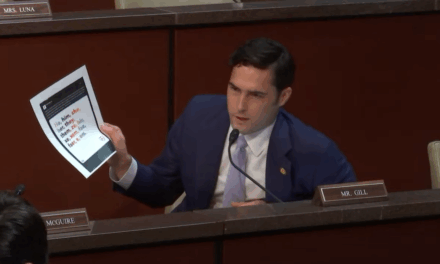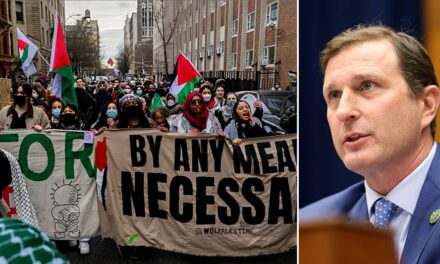The increasing frequency of Immigration and Customs Enforcement (ICE) raids has raised significant concerns for local communities across the United States, particularly in Los Angeles. Mayor Karen Bass has voiced her worries regarding these activities and the ripple effects they can have on essential services, such as childcare.
In an era where the impact of immigration policies is coming into full view, Bass’s remarks highlight the pressing challenge of maintaining a stable workforce in childcare. These services are critical for families who rely on them for support, enabling parents to balance work and family commitments.
The mayor’s apprehensions stem from the trust deficits that such enforcement actions can cause within immigrant communities. Parents, who often depend on these services, might withdraw their children from care settings if they fear that their caregivers or providers could be targeted by ICE. Such a scenario poses a severe risk of diminishing the available workforce, creating a strained situation for parents and caregivers alike.
Los Angeles has long been a melting pot and a refuge for immigrants from various backgrounds, many of whom contribute to the local economy through essential jobs that sustain everyday life. The childcare sector heavily relies on these workers, as many caregivers and educators in this field are immigrants themselves. Mayor Bass’s fears that widespread ICE activities could leave communities without adequate childcare solutions are not unfounded.
“If we start removing our childcare workers, then we won’t have anyone to look after our children, which fundamentally threatens the stability of families across Los Angeles,” Bass stated in a recent interview. This statement underscores the pivotal role immigrant workers play in the childcare sector and raises questions about the future of these critical support systems amidst ongoing enforcement actions.
Childcare is not merely a service; it is an essential infrastructure that underpins the economy. A lack of available childcare can hinder many parents’ ability to work, which can cascade into larger economic issues for the community. For families, the stakes are high. This situation becomes a major concern, especially for households where both parents must work to sustain their living, often in a costly city like Los Angeles.
Furthermore, the mayor’s concerns also encompass the social implications of such raids. When families feel that they have to avoid public services and resources out of fear of deportation or harassment, the cohesion of community bonds can fray. Children are left without nurturing care environments and educational opportunities essential for their development, which could have long-lasting effects on their future potential.
Local organizations and advocates have echoed Mayor Bass’s sentiments, noting that the threat of ICE raids not only frightens undocumented workers but also all those connected to them, creating a climate of anxiety that can be pervasive within whole neighborhoods. Families may hesitate to enroll their children in programs for fear of disappointing or endangering their caregivers, resulting in a potential decline in enrollment numbers.
To combat this looming crisis, Los Angeles officials have called for community engagement and support initiatives to help all families, regardless of their immigration status. These initiatives strive to create safe spaces where families feel empowered to access childcare without fear of retaliation or discrimination.
In addition, Mayor Bass has indicated the importance of providing resources and education to both parents and caregivers about their rights. Empowering communities with knowledge can mitigate fears and misconceptions surrounding ICE activities, potentially fostering a supportive environment that encourages individuals to participate openly in childcare programs.
“Building trust is essential,” Bass noted. It’s crucial for us to ensure that families know they can rely on each other and reach out for help, regardless of their circumstances.” The city’s administration is working on various collaborative projects with immigrant advocacy groups and community organizations to form safety measures and enhance overall support systems.
Another aspect being explored by the mayor’s office is strengthening partnerships with non-profit organizations focused on legal support for families facing deportation. Such collaborations can provide crucial assistance and can better prepare individuals for potential legal challenges related to their immigration status.
Moreover, these organizations are also exploring avenues to create temporary childcare solutions in case of abrupt disruptions due to ICE raids. By establishing emergency plans, communities can be better equipped to handle any sudden absences brought about by enforcement actions, ensuring that children’s childcare stability remains intact.
In discussions extending beyond immediate childcare implications, Mayor Bass is also advocating for broader reforms at the legislative level. Her administration is actively pushing for policies that champion immigrant rights and worker protections, alongside fighting for comprehensive immigration reform that addresses these ongoing issues at the national level.
The protection of workers, especially those in essential roles, must be at the forefront of any conversation regarding immigration policy. Naturally, workers face the challenge of balancing their employment needs with the fear of potential repercussions from ICE actions. Thus it is vital for lawmakers to understand the intersection of immigration policy and vital service jobs, such as childcare.
As this issue unfolds, the community will be keeping a close eye on how local and national dialogues progress concerning immigration enforcement. Meanwhile, Los Angeles and other cities across the country are at a crossroads where elected officials must navigate the delicate balance of law enforcement, economic stability, and the well-being of their citizens.
For Mayor Bass and community activists, the central refrain remains clear: if the childcare workforce dwindles through continuous ICE raids, there will be severe reverberations throughout the community. The very fabric of society could become threatened as childcare, a foundation for many families, faces unprecedented challenges.
In conclusion, there is an urgent need for unity, dialogue, and action in addressing these challenges related to immigration enforcement and its direct impact on childcare services. The stakes are high, and the well-being of families, children, and communities hangs in the balance as this situation continues to evolve.
Ultimately, the future of childcare in Los Angeles may depend on advocacy efforts, informed policymaking, and the fostering of supportive community networks that prioritize the lived experiences of families and workers alike. As discussions proceed, Mayor Bass’s voice serves as a vital reminder of the interconnectedness of these issues and the urgency of addressing them comprehensively.
































